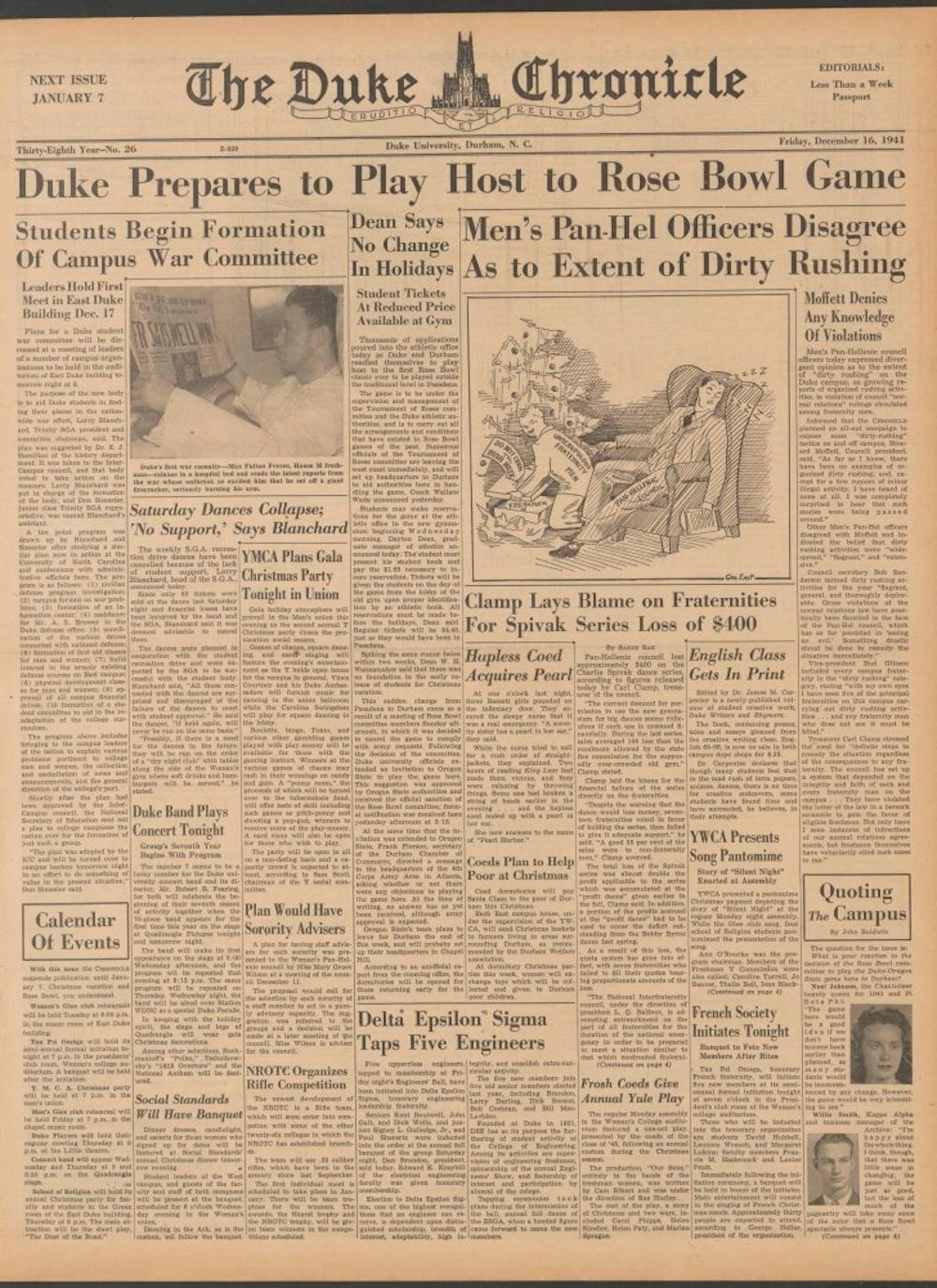Friday evening, No. 1 Alabama defeated No. 4 Notre Dame in the 2021 Rose Bowl Game to advance to the College Football Playoff National Championship.
But this wasn't an ordinary Rose Bowl.
Historically, the Rose Bowl takes place in Pasadena, Calif., at the iconic stadium that shares its name. However, this year's contest took place at AT&T Stadium in Arlington, Texas in order to allow a limited amount of fans—about 16,000—to attend.
Alabama's 31-14 victory marked the second time the Rose Bowl had ever been played outside of Pasadena, and the first time in 79 years. Interestingly, Duke is intertwined with this portion of Rose Bowl history.
Let's go back to 1942. Initially, "The Grandaddy of Them All," as the Rose Bowl is nicknamed, was scheduled to take place at its usual venue, but tragedy got in the way. On Dec. 7, 1941—less than a month before the game was set to kick off—the Japanese navy bombed Pearl Harbor, bringing the United States into World War II. Due to widespread fear regarding another attack on the West Coast by Japan, the federal government banned large gatherings in that region of the country, including the Rose Bowl and the accompanying Rose Parade.
Coincidentally, Duke had been invited to face off against Oregon State in that year's Rose Bowl. The Blue Devils were 9-0 on the season, had won the Southern Conference title, and were ranked No. 2 in the AP poll, while the Beavers were 7-2 and ranked No. 12. Since California would be unable to host, Duke head coach Wallace Wade proposed that the game take place in Durham at Duke Stadium, known today as Wallace Wade Stadium. While Wade had a frayed relationship with the Rose Bowl and West Coast media thanks to an incident after the 1939 contest, which the Blue Devils lost 7-3 to USC, officials accepted the offer and college football's most famous bowl game was on the move.
Duke Stadium required some alterations in order to host the game, as extra bleachers were borrowed from neighboring UNC and N.C. State and added behind one end zone. In the end, 56,000 tickets—up from the normal 35,000-seat capacity of the stadium at the time—were sold in the lead up to the contest.
Duke entered as clear favorites over Oregon State—during the 1941 regular season, the Blue Devils averaged 34.6 points per outing, and their smallest margin of victory was 13. However, a Duke fumble on the opening kickoff proved to be a poor omen. By the end of the game, the Blue Devils had turned the ball over seven times against Oregon State's stingy defense, falling to their cross-country visitors by a final score of 20-16.
With this year's Rose Bowl taking place in Texas, the conversation during the telecast sometimes shifted to that blustery day in 1942. Even 79 years later, Duke's connection with the iconic sporting event lives on.
Get The Chronicle straight to your inbox
Sign up for our weekly newsletter. Cancel at any time.

Max Rego is a Trinity senior and an associate sports editor for The Chronicle's 118th volume. He was previously sports managing editor for Volume 117.

